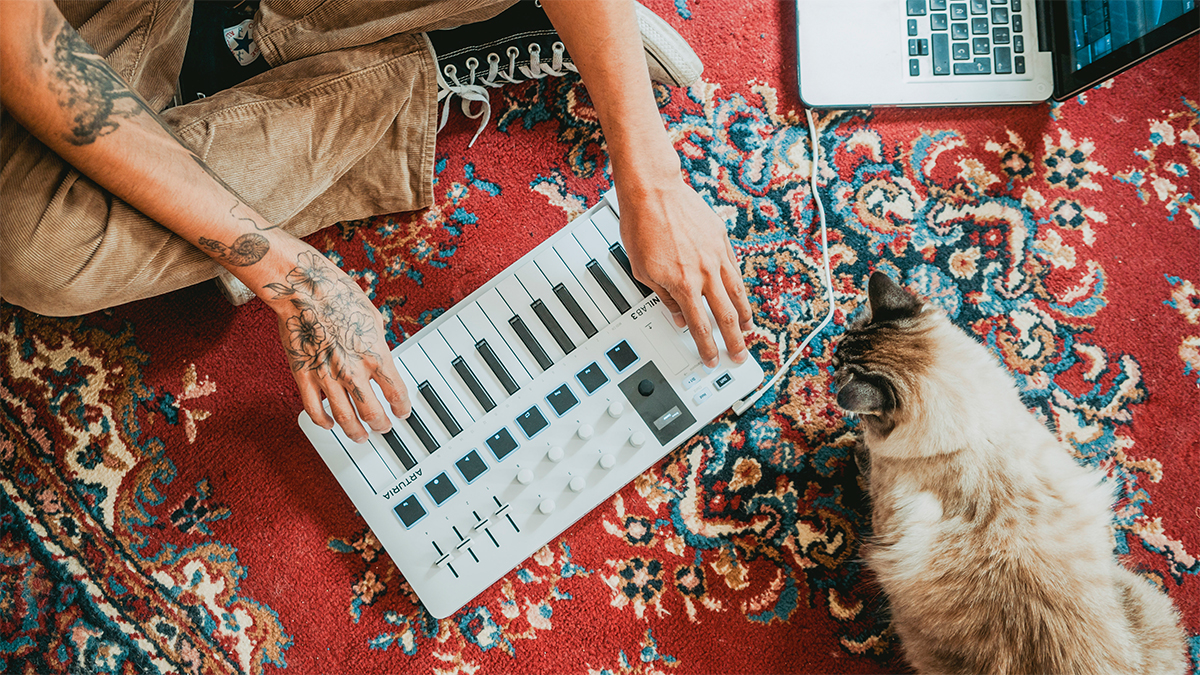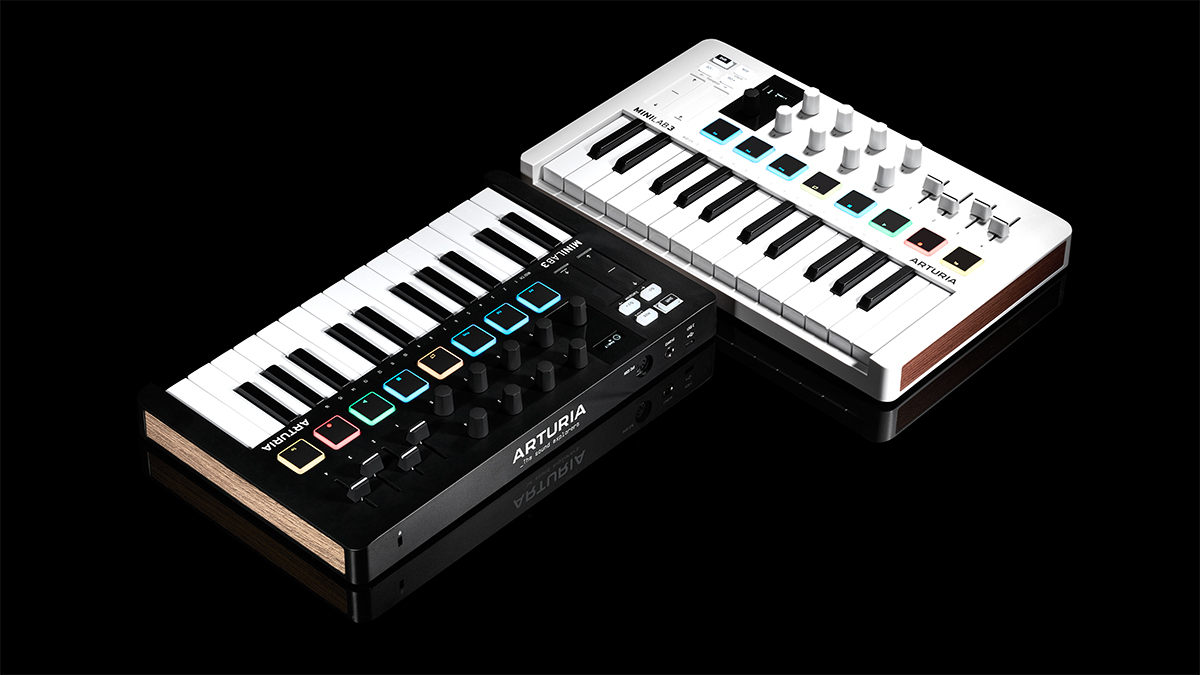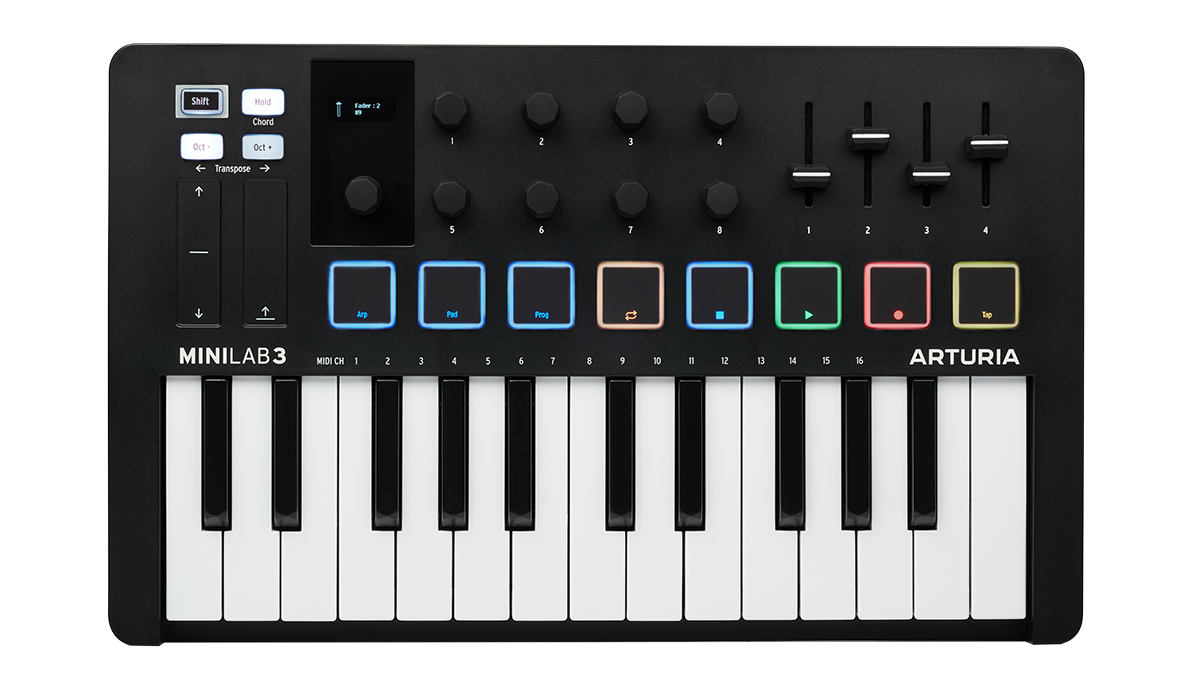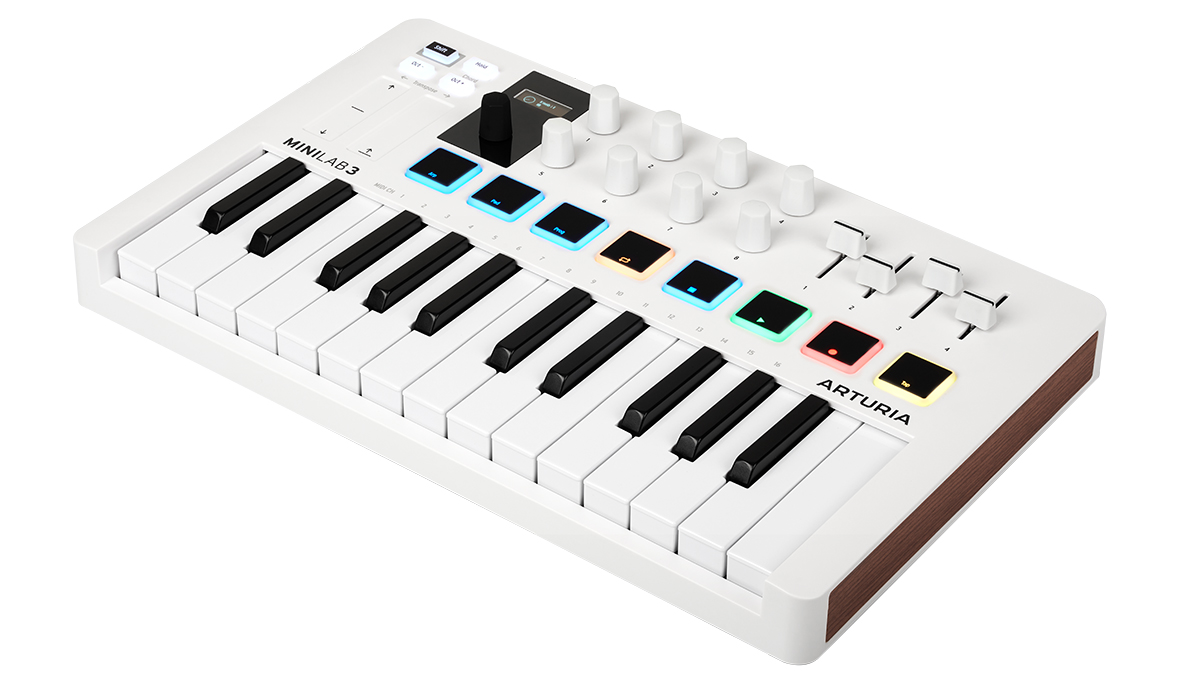Meet Arturia MiniLab 3, “the world’s first eco-designed MIDI keyboard”
25-note controller is said to be a greener option than its predecessors and rivals

Arturia has refreshed its MiniLab MIDI keyboard and introduced a third-generation version. In terms of specs, it’s a similar offering to its predecessor, giving you a compact 25-note keyboard, various other control features and plenty of sounds courtesy of the tightly integrated Analog Lab intro software that comes included.
The slim keys - which are said to feel great, by the way - are joined by pads, faders and knobs, plus touchstrips for pitchbend and modulation and a new OLED display. The faders are new to the MiniLab, though space constraints mean that there are fewer faders than on the MiniLab mkII.
There’s also a built-in arpeggiator, a Chord mode and custom DAW presets for Ableton Live, FL Studio, Logic Pro, Bitwig Studio and Reason.
The obligatory USB port, meanwhile, is now of the 'C' variety, and there's now a proper 5-pin MIDI Out, too.
As well as being built “with longevity and sustainability in mind” - a five-year warranty is evidence of Arturia’s confidence in the design and components - MiniLab 3 is also said to be “the world’s first eco-designed MIDI keyboard”. Arturia claims that it’s made with a minimum of 50% recycled plastic and generates less waste during production, while the packaging is said to be 100% recyclable.



As well as Analog Lab, the software bundle also includes Ableton Live Lite, the UVI Model D Minimoog emulation, Native Instruments’ The Gentleman upright piano, sample packs from Loopcloud and an intro subscription to Melodics, the music learning platform.
Find out more on the Arturia website. MiniLab 3 is available in black and white priced at $109/€99.
Get the MusicRadar Newsletter
Want all the hottest music and gear news, reviews, deals, features and more, direct to your inbox? Sign up here.



I’m the Deputy Editor of MusicRadar, having worked on the site since its launch in 2007. I previously spent eight years working on our sister magazine, Computer Music. I’ve been playing the piano, gigging in bands and failing to finish tracks at home for more than 30 years, 24 of which I’ve also spent writing about music and the ever-changing technology used to make it.









